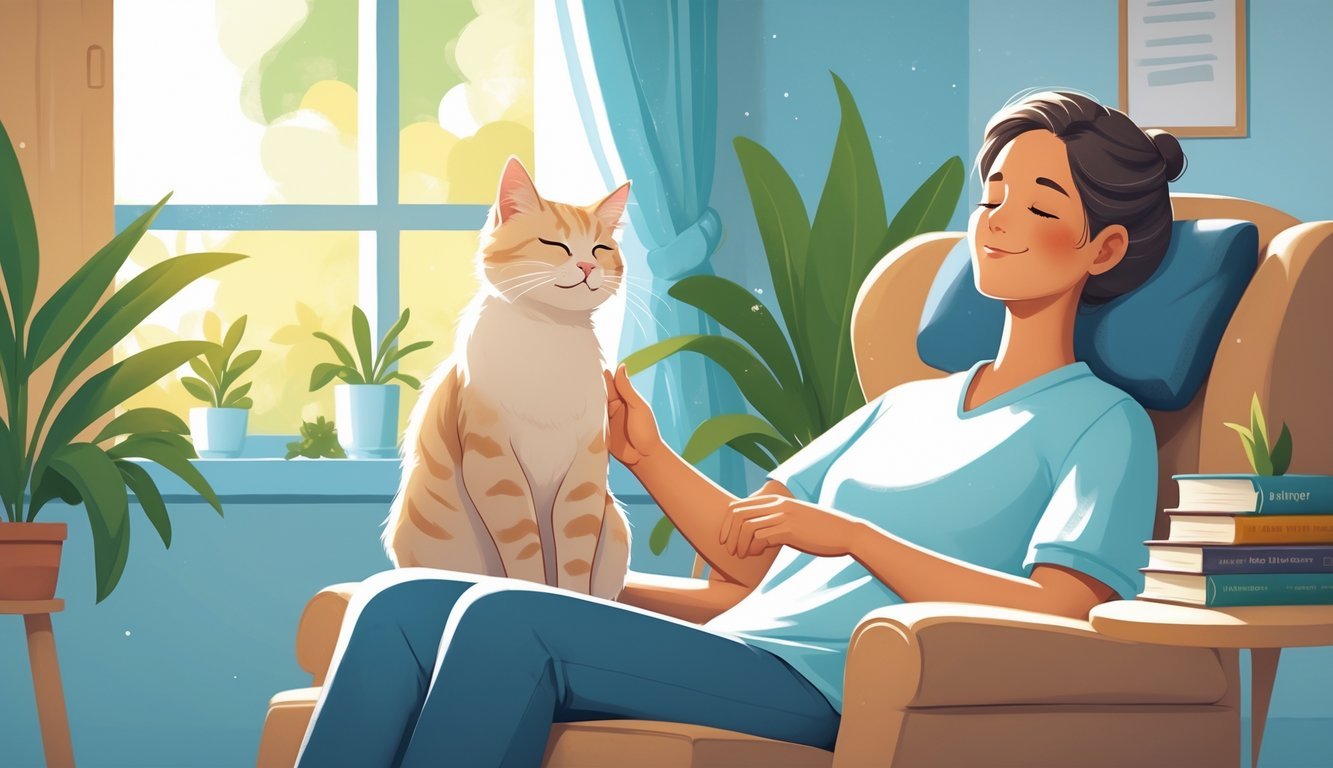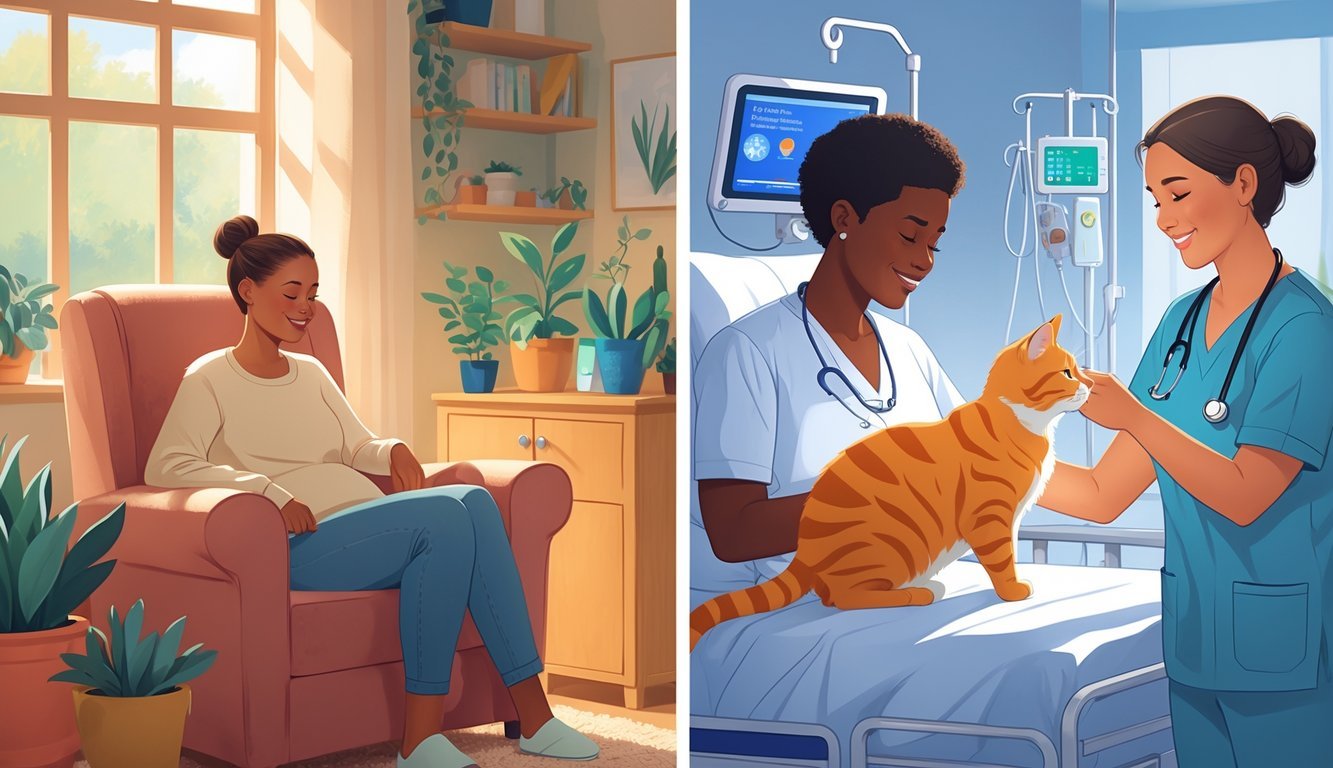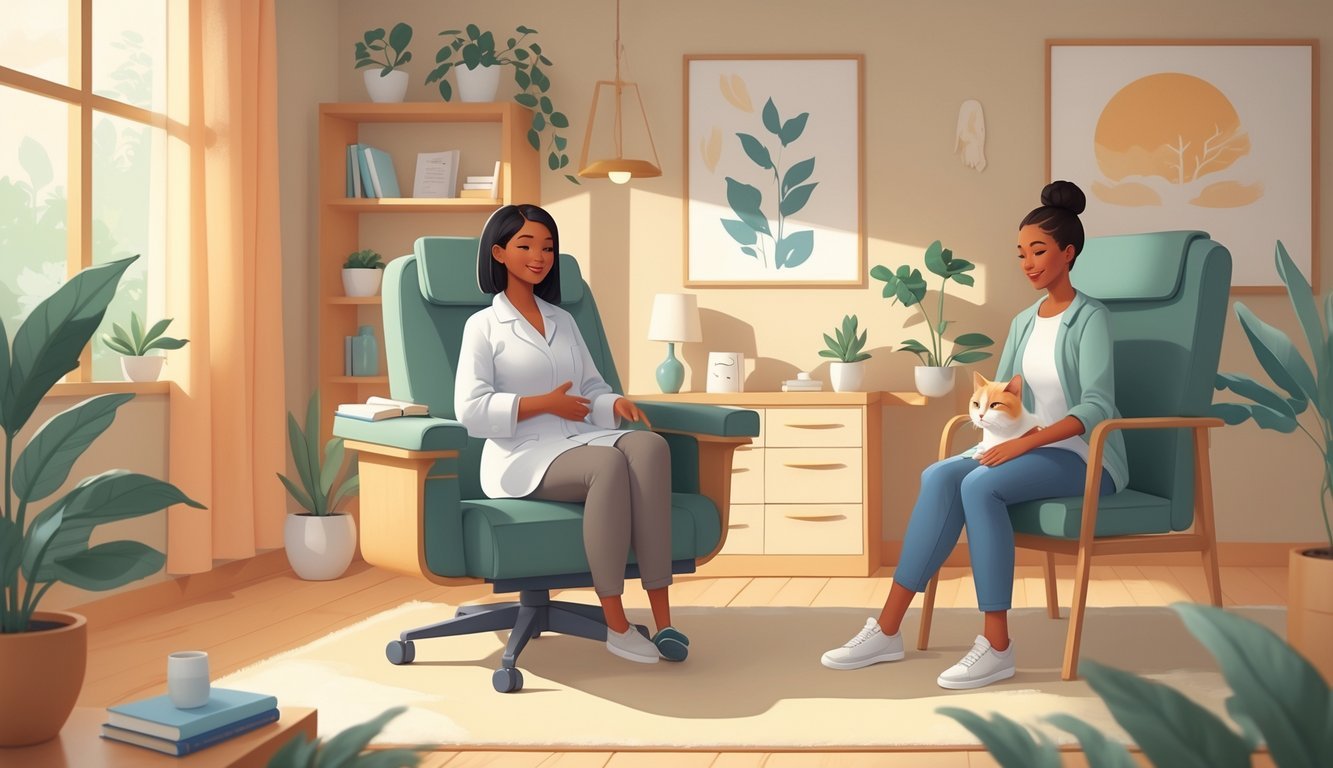PsychNewsDaily Publishers
100 Summit Drive
Burlington, MA, 01803
Telephone: (320) 349-2484
PsychNewsDaily Publishers
100 Summit Drive
Burlington, MA, 01803
Telephone: (320) 349-2484
Cats significantly improve human emotional and physical health by lowering stress, alleviating anxiety, and providing companionship that fosters healing and overall well-being.

Cats just have this special knack for making people feel better—physically and emotionally. Their gentle purrs and calm energy can reduce stress, lower blood pressure, and sometimes even help with breathing.
Honestly, just having a cat nearby brings a sort of comfort that supports healing and emotional well-being.
These furry friends aren’t just pets—they’re like little therapists, always ready to offer companionship and calm. A lot of cats are social and affectionate, so they’re great at easing loneliness or anxiety.
You don’t need fancy tools or treatments; just hanging out with a cat can help your nervous system chill out.
At home or in therapy programs, cats step up as surprising helpers in health and healing. It’s wild how these quiet companions can improve your life in ways you might not expect.

Cats can play a big role in helping you feel better, both emotionally and physically. Their presence, purring, and affection help lower stress and boost your mood.
You build a bond with a cat, and that can ease feelings of loneliness or anxiety.
When you spend time with a cat, you often notice you feel calmer and more comforted. Cats give unconditional love and support without judging you, which can really help if you’re feeling down.
Their gentle purring and soft cuddles release oxytocin and endorphins in your brain. Those are the hormones that make you feel happy and relaxed.
This emotional connection can lift your psychological well-being. Cats stick by your side during rough times, offering quiet comfort.
Just petting a cat can slow your heart rate and lower blood pressure, which helps ease stress and brings a sense of peace.
Cats don’t just help your mind—they can improve your body too. If you live with a cat, you might notice your cardiovascular health gets a boost, since being around them lowers stress hormones and your risk of heart attacks.
This happens partly because cats help you relax and feel less anxious.
The calming presence of a cat, and their steady purring (which vibrates between 25 to 140 Hz), may even help tissues and bones heal faster.
Some people find that living with cats helps guard against allergies and asthma, maybe because early exposure to their dander strengthens your immune system.
Cats are great at making you feel less alone. Their steady companionship gives you consistent company, especially if you live solo.
Having a cat means there’s always a friend waiting at home, so life feels a bit less isolated.
Cats can also help with anxiety and symptoms of PTSD or depression. Their presence gives you a soothing routine and a distraction from negative thoughts.
Just interacting with your cat brings a calming effect that quiets anxious feelings and helps you stay in the moment.

Cats play a unique role in making people feel better. Their calm presence can reduce stress and support mental and physical health in all sorts of places.
You’ll find therapy cats bringing comfort and healing in hospitals, nursing homes, and more.
A therapy cat is a specially trained cat who helps people feel calm and happy. These cats are gentle, friendly, and love being around people.
They visit places where folks might feel lonely or stressed.
Therapy cats work with handlers who guide them during visits. Their job is to offer a non-judgmental presence—just being near them can help reduce pain, fear, and anxiety.
Therapy cats help in many ways, like improving mood and encouraging conversation. Their soft purring and calm behavior make them naturals at helping people relax.
You’ll find therapy cats in hospitals, nursing homes, schools, and sometimes even private homes. In hospitals, they help patients feel less anxious before and after treatment.
Their visits can lower stress and help people heal.
In nursing homes, therapy cats encourage social connection and help residents communicate better. For people with dementia, cats can increase attention and make socializing easier.
Therapy cats also help people regain movement by encouraging gentle petting and interaction.
The impact on social skills and emotional health can last long after the visit.
Not every cat is cut out for therapy work. Training helps cats get used to new people, sounds, and environments.
They learn to stay calm and accept gentle handling.
Great therapy cats are social, patient, and tolerant. They enjoy attention but don’t get stressed out easily.
These cats are comfortable around humans and other animals, too.
Training also covers safety and hygiene to protect both the cat and the people they visit. Handlers and their cats have to follow rules to keep visits safe and positive.
| Key Traits of Therapy Cats | Details |
|---|---|
| Social and friendly | Willing to interact with people |
| Calm under pressure | Handles new environments well |
| Tolerant to touch | Comfortable being handled |
| Well-trained and obedient | Responds to handler’s cues |
If you want to support therapy cats, you can volunteer or get involved with animal-assisted therapy programs like Pet Partners. These programs give cats a safe way to help lots of people.

Cats can affect your mind and body in a bunch of useful ways. They can change your mood, help with anxiety, and sometimes even support healing.
Having a cat can lift your mood by increasing serotonin, which helps you feel happy. Cats also lower cortisol, the stress hormone.
This can lead to better overall well-being and a calmer mind.
Yes, cats often pick up on your emotions. Their calm presence can help you feel less alone and more comforted.
Just petting a cat can slow your breathing and help you relax.
Cats lower your stress through their purring, touch, and just being around. Their purr vibrations can lower your blood pressure and reduce your heart rate.
Spending time with a cat often helps you feel more peaceful.
Research shows that cat owners are less likely to have heart disease. The calming effect of cats can also help you recover better from infections and even bone injuries in some cases.
The exact reasons are still being studied, but the evidence is promising.
Cats bring comfort and a sense of connection, which helps fight loneliness and depression.
They also encourage routines—feeding, playing, caring—that can improve your daily habits and mental health.
Cats really can help people feel better, especially when it comes to anxiety and stress. Just having a cat around, or hearing them purr, often makes you feel calmer and more grounded.
Honestly, their quiet company can be a huge comfort during tough times.